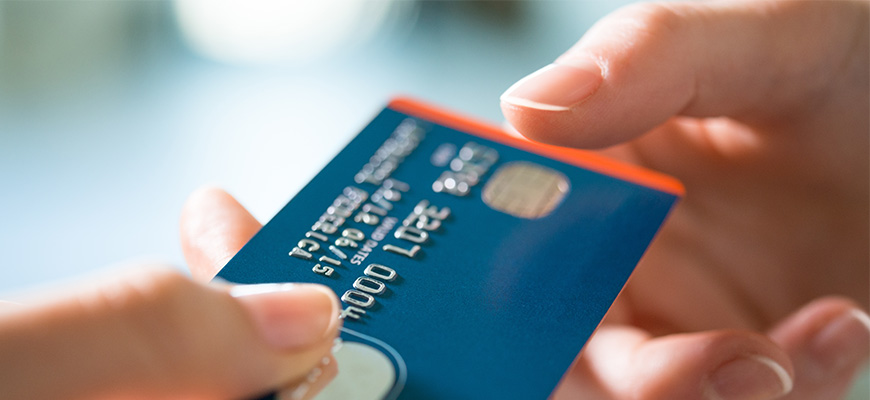As you build your credit, you’ll probably start to receive frequent credit card offers, which may leave you wondering how many credit cards a person should reasonably have.
While the average Canadian has between 1-2 credit cards, there’s no hard and fast rule for how many credit cards a person should have, and there are pros and cons to having several cards. Ultimately, it’s up to you to determine how many cards you can reasonably manage based on your income, spending habits, and goals.
Read on as we unpack the pros and cons of having multiple credit cards, how you might use them to your advantage, and what to avoid to protect your credit score.
Is It Good to Have Multiple Credit Cards?
As long as you manage your credit cards responsibly and make your payments on time, there’s nothing wrong with having multiple credit cards. In fact, if you use credit strategically, holding multiple cards can help you capitalize on rewards programs, improve your credit to debt ratio, and offer a safety net for emergency purchases.
However, if you’re not thoughtful about which credit cards you apply for or how you use them, you may wind up paying excessive annual fees, and you could even harm your credit score if you don’t manage your accounts well.
The Advantages of Having Multiple Credit CardsHaving multiple credit cards can be advantageous when you use your credit responsibly. Here are a few ways they might come in handy.
You can capitalize on rewards programs.
Credit card rewards programs offer various benefits from cashback to travel rewards, front-of-the-line ticket purchases, discounts on fuel, or extended warranties on products. Choosing rewards programs that match your spending habits can save you a lot of money! Depending on your spending habits, joining more than one credit card rewards program might make sense. For instance, if two of your main spending areas are travel and shopping, opening a travel rewards card and a cashback credit card might make sense instead of using the same card for everything.
Improve your credit utilization ratio.
Credit utilization makes up 30% of your credit score, and maintaining a low debt to credit ratio is favorable. Opening additional credit cards increases the amount of credit available to you and improves your credit utilization ratio (as long as you don’t immediately run up a balance on them). To protect your credit score, aim never to spend more than 30% of your available credit.
You’ll have increased spending power.
Having additional credit cards can make it easier to cover large purchases. While you should never spend more than you can reasonably pay back, sometimes having a little extra wiggle room in your budget enables you to afford conveniences that you’d otherwise have to spend months saving up for. For instance, if your laptop dies, you can replace it using credit and pay it off over a few pay periods rather than going without a computer for several weeks while you save money from each paycheck.
You have a backup card.
Having a backup credit card can come in handy in many different scenarios. If your wallet gets stolen or your main card becomes compromised, having a backup credit card means you can still pay for anything you need.
The Disadvantages of Having Multiple Credit CardsBefore you add a new card to your wallet, make sure you know the potential disadvantages of holding multiple credit cards.
Keeping track of payments is harder.
When you have several credit cards with different due dates, it can quickly become overwhelming to keep track of how much to pay and when. If you fall behind on payments, you will pay higher interest rates on outstanding debt and late fees on every account that you’re behind on.
Late payments and a higher credit utilization rate will cause your credit score to drop, and the additional fees can make it challenging to catch up on what you owe. If you have multiple credit cards, devise a tracking system to ensure you stay on top of your payments.
Applying for too many credit cards at once will ding your credit score.
Multiple credit inquiries in quick succession may be seen by lenders as an act of desperation and hurt your credit score. If you wish to have multiple credit cards, apply for them gradually over time.
Opening a new account will lower the average length of your credit history.
The longer your average credit history, the better (which is why you should never close your oldest credit account). Each time you open a new account, it affects your average, lowering your credit score. The length of your credit history makes up just 15% of your overall credit score, but it’s still worth keeping this metric in mind before you open a new account.
You could be tempted to overspend.
Credit is a powerful asset when used responsibly, but it can also tempt you to live beyond your means. If you have multiple credit cards, you may find yourself drawn to spending more money than you would otherwise, which could prove problematic when the bills start to come. Always take care to live within your means, as credit card debt can quickly spiral out of control if you can’t stay on top of your payments. This will impact not only your quality of life but also your credit score.
Annual fees add up.
Taking advantage of the perks and rewards your credit cards offer often offsets the costs of the annual fees. But, if you’re paying annual fees on cards you rarely use, they might be costing you money. If you’re looking for more credit, increasing your credit limit on an existing card may make more sense than taking out a new one. Weigh the pros and cons carefully before opening a new account.
How Much Credit Should You Use?
Since your credit utilization ratio accounts for 30% of your overall credit score, it’s essential to be mindful of how much credit you use. The general rule is that you should never use more than 30% of the credit available to you. Spending more than 30% will usually cause your credit score to drop by a few points. If you ever want a quick boost in your score, pay down some debt.
How Often Should You Apply for a Credit Card?
Credit inquiries account for 10% of your overall credit score, so applying for several new credit accounts in quick succession could negatively impact your score.
These inquiries will appear on your credit report for up to three years, and having too many of them can be a red flag to lenders. So, if you’re looking to increase the number of credit cards you have, don’t apply for them all simultaneously. Try to leave at least 90 days between each credit card application to minimize the impact of hard credit inquiries on your credit score.
Does Having Multiple Credit Cards Help Your Credit Score?
There’s no direct correlation between the number of credit cards you have and the health of your credit score. You could have a fantastic credit score with five credit cards or just one. The opposite could be true, too; you can have a low credit score with any number of credit cards.
What matters is how you manage your credit.
As long as you make your payments on time and maintain a credit utilization ratio of under 30%, you can have a fantastic credit score regardless of how many credit cards you have. If you opt to open multiple cards, be aware that the new credit inquiries could cause a temporary dip in your credit score.
The Bottom Line
Having multiple credit cards can be beneficial if you’re strategic about using them. Instead of signing on for every credit card offer that comes your way, be thoughtful about which accounts you open. Look for credit cards with perks and rewards that match your spending habits to offset some of your spending and earn back what you pay in annual fees. As long as you’re mindful about your spending, pay your bills on time, and maintain a low credit utilization ratio, having multiple credit cards won’t hurt your credit score– it might even improve it!













